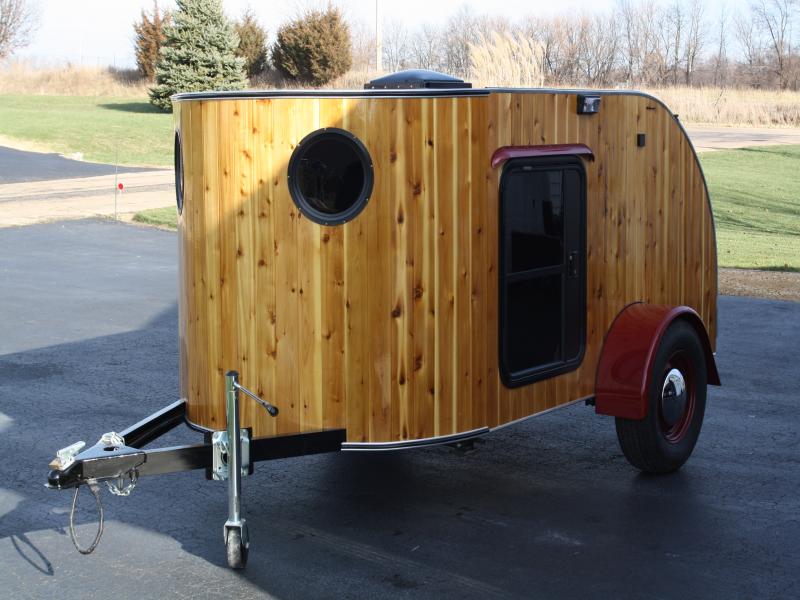" So a high resistance short at say 15 amps may not trip the 15 amp breaker, and a 20 amp short on the 20 amp breaker may not trip the 20 amp breaker."
Conversely, you could conceivably get a trip on a breaker when the current draw is below 110V/20A. They're thermal devices. That's why the summer time & hot electrical compartments can be a contributors to popping breakers in RVs.
Fuses can have similar issues.
As you adequately point out, there is nothing that is 100%. Like I said before, I tend to stay conservative and lean on the symposiums of guys with pointy heads that dream this stuff up.
Ultimately, I think the the meat of protection comes down to having adequate ampacity coupled with good workmanship skills.
Fuse panel Vs. Direct Wire
38 posts
• Page 3 of 3 • 1, 2, 3
Britlynz
Yes I can see where a power panel in an RV may heat up from the sun beating on the side. Also can see it happing because the breaker panel is to small in size for the current drown through it. After all most RV’s are small houses on wheels. Some have more amenities than most houses have. I have never camped in a wheeled house.
I have never camped in a wheeled house.  So I don’t know what problems they have. My camping has been ether tent or self made custom van. Shore power is an extension cord to a light bulb. I have been called primitive. I once went camping and woke up in the morning with an alligator yawning about 5 feet from me. That is the last time I camped under the stars. I really think the gator was eying me up for breakfast. It is really common since when doing the wiring on one of these. If you are going to the max power hungry appliances than a breaker panel and 220 split phase is the only way to go. For a battery charger, toaster, and a light bulb leaving out the breaker probably will not get one in trouble. It still takes common sense and good workmanship, if it’s chassis, body, or electricity.
So I don’t know what problems they have. My camping has been ether tent or self made custom van. Shore power is an extension cord to a light bulb. I have been called primitive. I once went camping and woke up in the morning with an alligator yawning about 5 feet from me. That is the last time I camped under the stars. I really think the gator was eying me up for breakfast. It is really common since when doing the wiring on one of these. If you are going to the max power hungry appliances than a breaker panel and 220 split phase is the only way to go. For a battery charger, toaster, and a light bulb leaving out the breaker probably will not get one in trouble. It still takes common sense and good workmanship, if it’s chassis, body, or electricity.
Chuck
Yes I can see where a power panel in an RV may heat up from the sun beating on the side. Also can see it happing because the breaker panel is to small in size for the current drown through it. After all most RV’s are small houses on wheels. Some have more amenities than most houses have.
 I have never camped in a wheeled house.
I have never camped in a wheeled house.  So I don’t know what problems they have. My camping has been ether tent or self made custom van. Shore power is an extension cord to a light bulb. I have been called primitive. I once went camping and woke up in the morning with an alligator yawning about 5 feet from me. That is the last time I camped under the stars. I really think the gator was eying me up for breakfast. It is really common since when doing the wiring on one of these. If you are going to the max power hungry appliances than a breaker panel and 220 split phase is the only way to go. For a battery charger, toaster, and a light bulb leaving out the breaker probably will not get one in trouble. It still takes common sense and good workmanship, if it’s chassis, body, or electricity.
So I don’t know what problems they have. My camping has been ether tent or self made custom van. Shore power is an extension cord to a light bulb. I have been called primitive. I once went camping and woke up in the morning with an alligator yawning about 5 feet from me. That is the last time I camped under the stars. I really think the gator was eying me up for breakfast. It is really common since when doing the wiring on one of these. If you are going to the max power hungry appliances than a breaker panel and 220 split phase is the only way to go. For a battery charger, toaster, and a light bulb leaving out the breaker probably will not get one in trouble. It still takes common sense and good workmanship, if it’s chassis, body, or electricity.
Chuck
Chuck a new td builder
- Chuck Craven
- 500 Club
- Posts: 550
- Images: 62
- Joined: Mon Jul 26, 2004 6:54 pm
- Location: wisconsin





